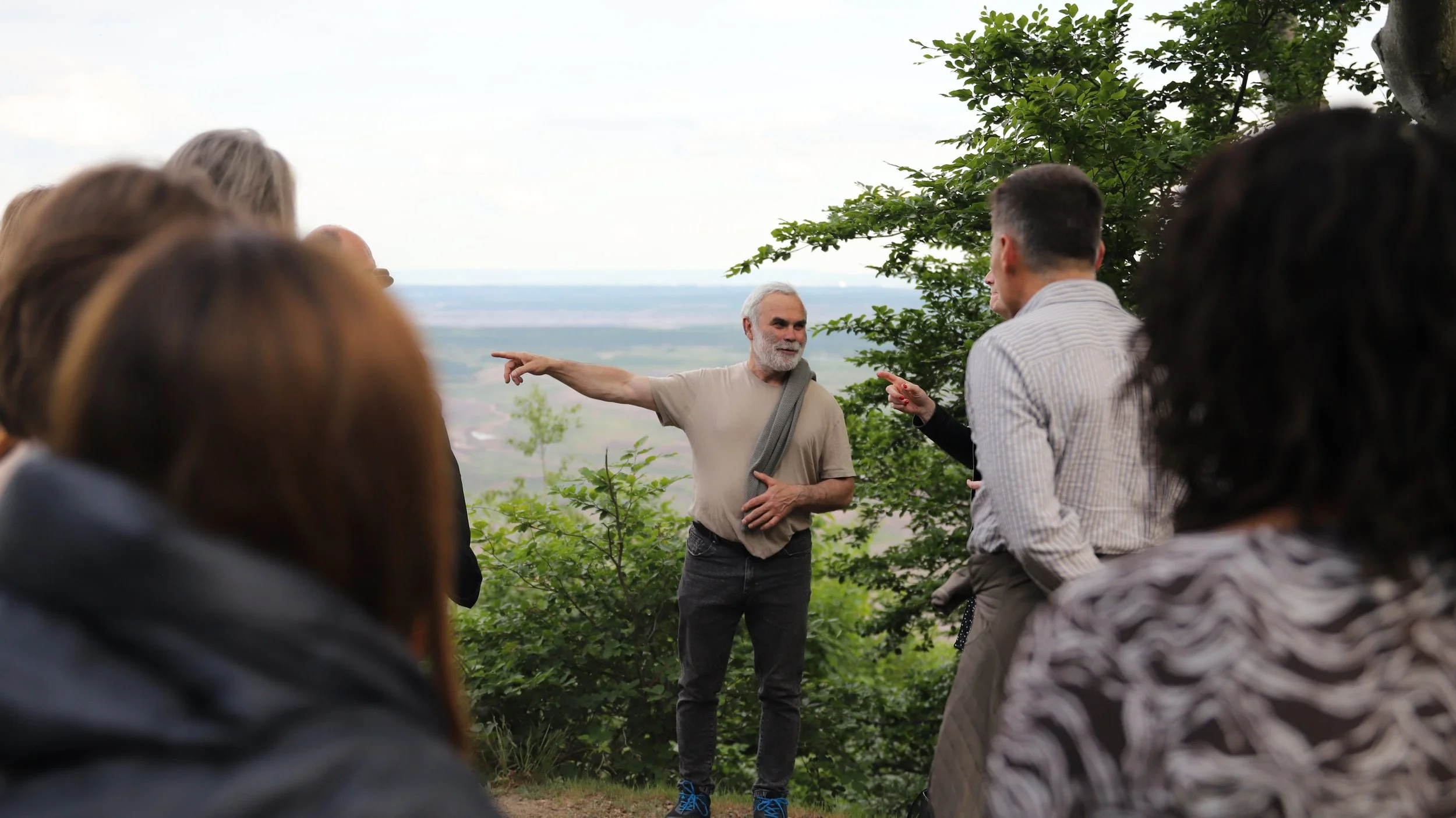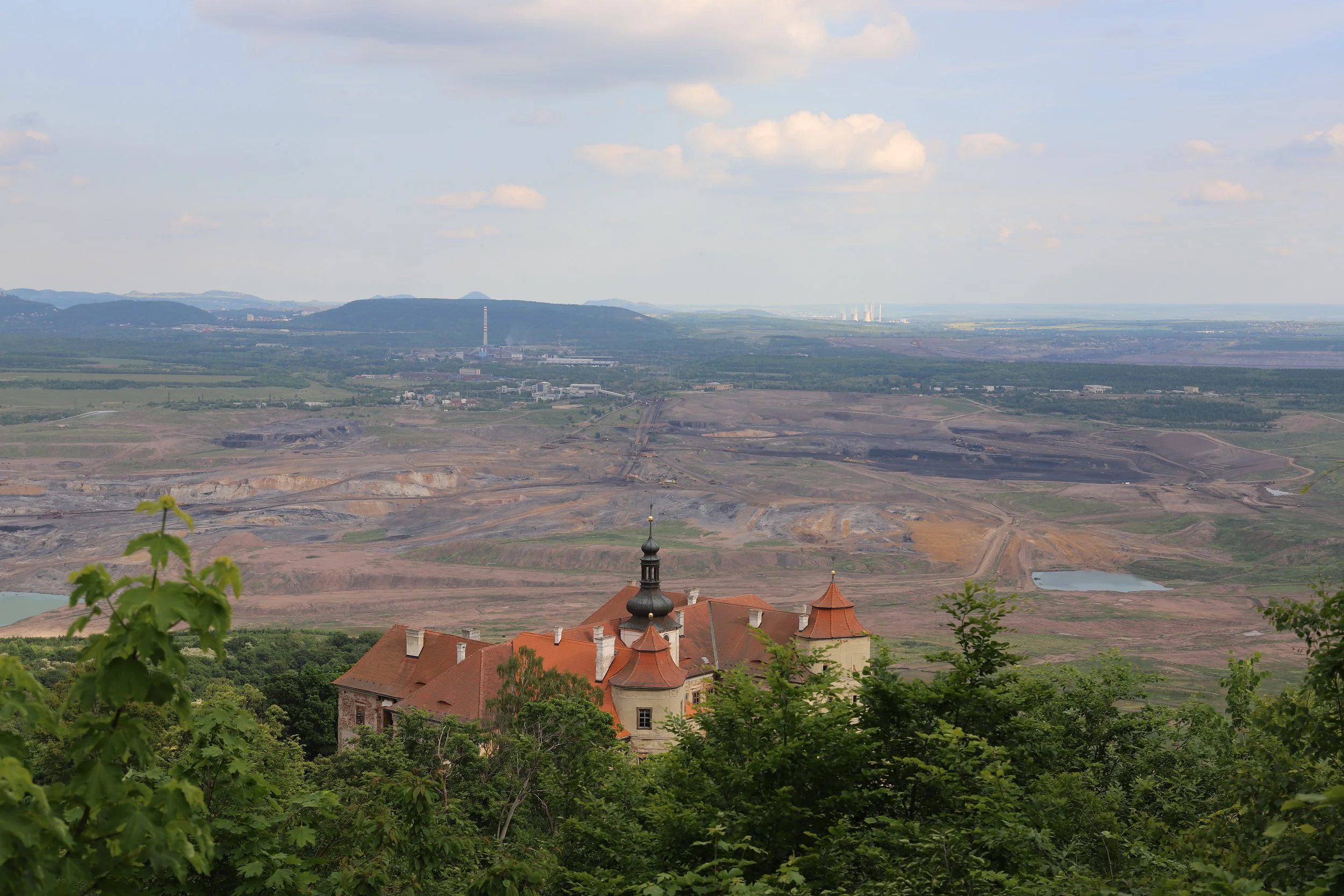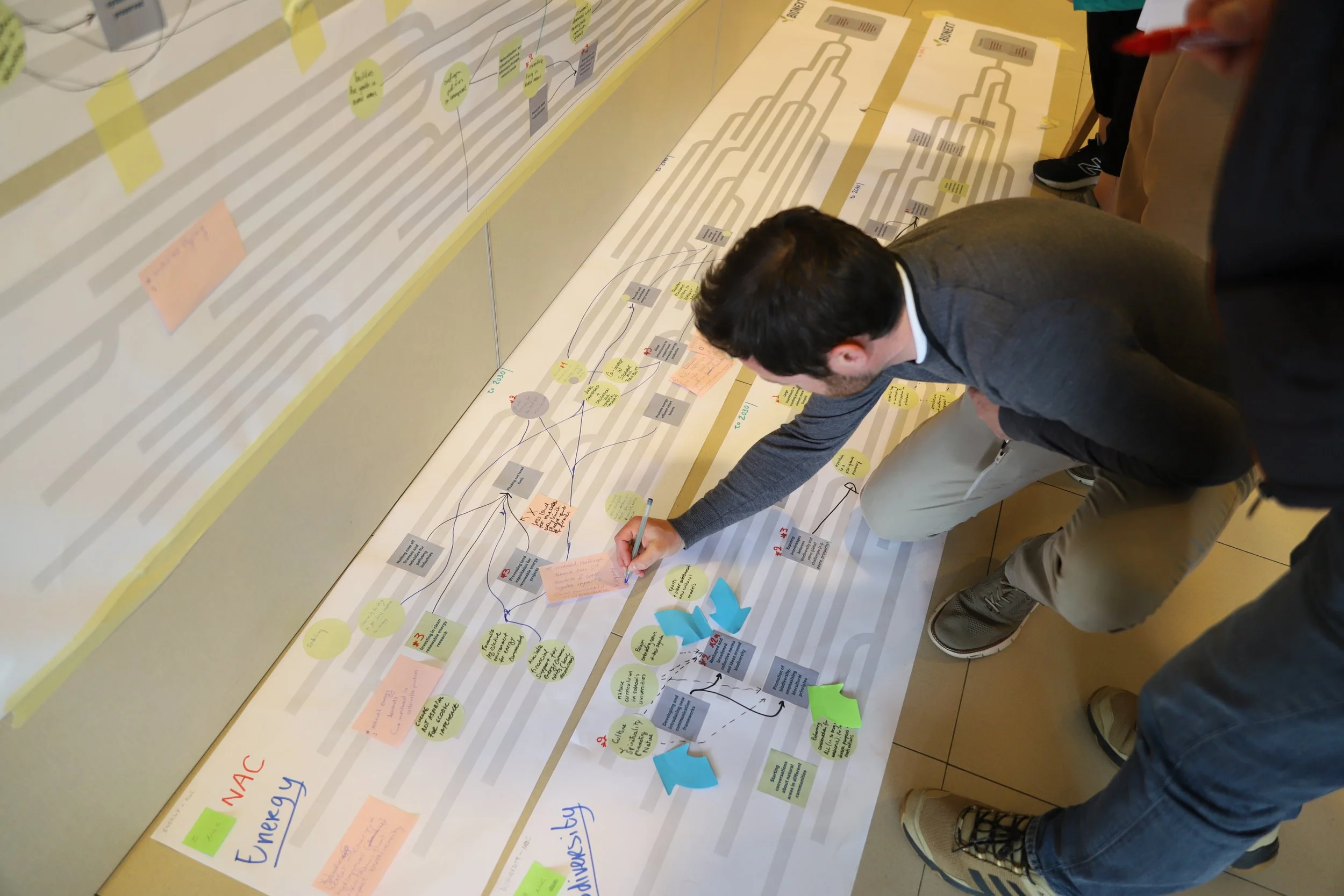Blog | Continuing the Transition: The Third BIONEXT Workshop Tackles Transformation in a Region Undergoing Change
In May 2025, the BIONEXT project held its third international workshop - this time in the spa town of Teplice in the Czech Republic, a region deeply shaped by both ecological degradation and the promise of renewal. Building on the foundational work of the previous two workshops in Santorini (2023) and Schoorl (2024), this year's gathering focused on advancing transition pathways toward a nature-centered Europe.
Organised by the Department of Social-Ecological Analysis at the Global Change Research Institute of the Czech Academy of Sciences (CzechGlobe), the workshop brought together researchers and practitioners from across Europe. The diversity of perspectives - ranging from nature conservation and environmental health to agriculture, water governance, and social equity - enriched the discussions and helped to bridge the research, policy and practice.
Workshop participants listen to Vladimír Buřt during an excursion to Jezeří Chateau, from where they had a view of the ČSA open-pit quarry. Picture: Jukka-Pekka Ronkainen / Syke
A Region in Transition as a Living Backdrop
The choice of Teplice was no coincidence. Located in Northern Bohemia, the region is undergoing its own transformation, moving away from coal-based energy and heavy industry toward more sustainable futures. As such, it provided a powerful backdrop for discussing transformation - not as an abstract concept, but as a lived, ongoing process.
Jezeří Chateau, standing on the edge of vast open-pit mines, serves as a stark reminder of the region’s environmental challenges and ongoing transformation. Picture: Jukka-Pekka Ronkainen / Syke
To deepen this connection between theory and practice, participants visited Jezeří Castle on the edge of a vast open-pit coal mine. There, they heard from Vladimír Buřt, the long-serving mayor of Horní Jiřetín and a key civic figure in the fight to preserve mining limits. His story offered a personal and political perspective on the region’s struggles and hopes for the future, a compelling reminder of what is at stake when we talk about transformation. Participants, mostly from abroad, showed a genuine interest in the insights describing the historical tensions, and influence of various agendas shaping the transformation of this region.
From Shared Visions to Actionable Pathways
Over the past two years, the BIONEXT project has explored how to build a nature-centered Europe by 2050. The first workshop, which took place on the Greek island of Santorini in 2023 produced three distinct visions: Nature for Society, Nature for Nature, and Nature as Culture. These reflected different value-based relationships with nature and served as aspirational endpoints. Further discussions took place a year later in the picturesque Dutch town of Schoorl. Here, the participants applied backcasting methods to trace how such futures might be reached, identifying milestones, actors, and interventions across key sectors.
The workshop held in Teplice from 19 to 21 May 2025 built on this foundation and focused on increasing the transformative potential of pathways toward a nature-centered Europe. The agenda unfolded over three days and engaged 20 stakeholders and 11 co-facilitating project team members through a dynamic mix of plenary sessions, small group work, reflective exercises and above mentioned field visit.
Deepening the Process: Co-Designing Pathways Through Reflexivity, Systems Thinking, and Policy Dialogue
The first day set the tone with a welcoming walk in the nearby park accompanied by a podcast on transition pathways, followed by a plenary introduction to the workshop goals, visions, and methodology. This was immediately complemented by reflexivity work: participants shared personal intentions and reflected on their unique perspectives in small groups, contributing to an "intentions wall". The afternoon continued with a creative session on "radicality," where four imagined characters stimulated discussion on diverse approaches to radical thinking. Participants then transitioned into group-based work on transition pathway archetypes, brainstorming concrete examples of transformative societal change based on previously analysed archetypes.
On the second day, participants delved into the practical development of transition pathways. The morning began with breakout groups working on system diagrams for specific sectors, aiming to enrich and connect actions and milestones in the existing pathways. This was followed by synthesis work: stakeholders regrouped according to scenario pathways (Nature for Society, Nature for Nature, Nature as Culture) and examined how system maps could be aligned, where synergies or tensions existed, and how indirect societal drivers (like education, governance, or equity) influenced different elements.
The beautiful park outside the venue offered a vibrant setting for workshop activities. Picture: Jukka-Pekka Ronkainen / Syke
A notable feature of the second day was a series of reflexivity dialogues, encouraging participants to engage with assumptions underlying knowledge integration. Structured as physical movement exercises along a spectrum of agreement and disagreement, these dialogues deepened the collective understanding of how different values and perspectives influence transition design. The day concluded with a policy session in smaller breakout groups, where participants examined whether key actions identified in the pathways were currently supported by existing EU policy instruments, and discussed what additional regulatory or policy support might be needed.
Participants divided into three break-out groups discuss the education, governance and equity aspects of the individual pathways and their elements (actions and milestones), as well as synergies and potential conflicts across the nexus domains.
The workshop brought together stakeholders from across Europe, representing perspectives from nature conservation and environmental health to agriculture, water governance and social equity. Picture: Jukka-Pekka Ronkainen / Syke
The third and final day focused on quantifying pathway elements for modelling purposes. Working in groups with dedicated booklets, participants were asked to draw trendlines and estimate values for selected variables across the three scenarios up to 2050. These exercises, based on discussion and consensus, will feed directly into modelling components of the BIONEXT project. The final sessions presented the Pathways App and revisited radicality and reflexivity themes, offering space for feedback, shared learning, and synthesis of the experience. Participants were asked to reflect on their characters from the radicality exercise and to provide feedback via a participatory "traffic light" evaluation.
Overall, the Teplice workshop created space for meaningful exchange and deepened the integration of diverse knowledge systems, perspectives, and values into the BIONEXT process. With its mix of grounded discussion, analytical depth, and creative reflection, the workshop marked a key moment in co-creating pathways that are not only theoretically robust, but also socially legitimate and actionable.
Looking Ahead: From Ideas to Change
The Teplice workshop was not just about analysis, but also about relationships, collaboration, and grounding high-level visions in place-based realities. It reaffirmed the BIONEXT project’s commitment to integrating environmental and societal goals in the transition to sustainability. As the project moves into its next phase, the insights from Teplice will help inform integrated transition pathways and concrete policy recommendations.
Jitka Martinkova works at The Global Change Research Institute of the Czech Academy of Sciences – CzechGlobe





